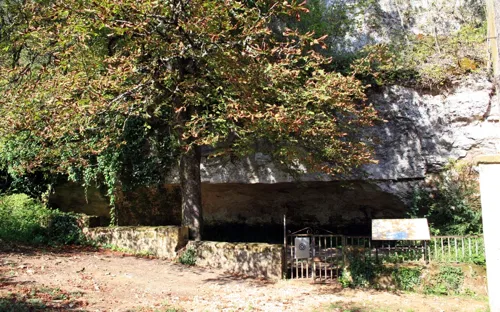The Abri Cro-Magnon and its collection
The Cro-Magnon site is an Aurignacian (Upper Paleolithic) site, located in a rock shelter at Les Eyzies, a small village in the commune of Les Eyzies-de-Tayac-Sireuil, Dordogne, in southwestern France. This location is significant as it is the site where the first anatomically modern human remains were discovered, dating back to approximately 28,000 years ago.
UNESCO World Heritage Status of the Cro-Magnon Site
The Abri de Cro-Magnon site has been recognized by UNESCO and is included in the World Heritage List as part of the Prehistoric Sites and Decorated Caves of the Vézère Valley site. This recognition underscores the site's global significance and its contribution to our understanding of prehistoric human life.
Discovery and Excavations at the Cro-Magnon Site
In 1868, the Cro-Magnon site was discovered when workmen found animal bones, flint tools, and human skulls in the rock shelter. French geologist Louis Lartet was called in for excavations and found the partial skeletons of four prehistoric adults and one infant. Along with these remains, perforated shells used as ornaments, an object made from ivory, and worked reindeer antler were also discovered.
History & Anthropology Nature & Natural History Archaeology

